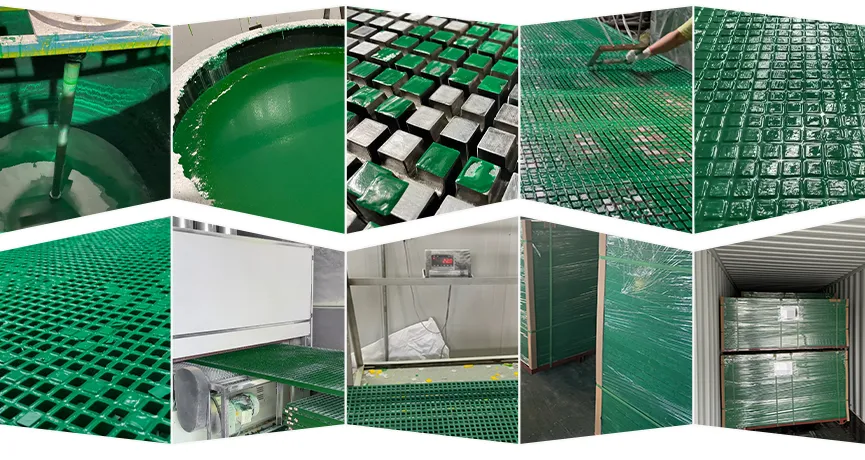loading...
- No. 9, Xingyuan South Street, Dongwaihuan Road, Zaoqiang County, Hengshui, Hebei, China
- admin@zjcomposites.com
- +86 15097380338
- Welcome to visit our website!
Effective Methods for Treating Hard Water in Residential and Commercial Settings
Understanding Hard Water Treatment Importance and Methods
Hard water, which is water with a high mineral content, primarily calcium and magnesium, can pose various challenges in both domestic and industrial settings. While hard water is not a health hazard, it can lead to a range of complications, including scale buildup in pipes and appliances, reduced soap effectiveness, and poorly functioning water heaters. Consequently, hard water treatment has become an essential aspect of water management.
The Impact of Hard Water
When hard water is heated or allowed to stand, minerals precipitate out of the water, leading to limescale buildup that can clog pipes, reduce water flow, and increase energy costs. This scaling can significantly reduce the efficiency of heating systems and appliances, ultimately leading to costly repairs or replacements. Moreover, hard water can also diminish the effectiveness of soaps and detergents, requiring larger quantities to achieve the desired cleaning results. This not only translates to an increased cost for households and businesses but also impacts the environment due to higher chemical usage.
Methods of Hard Water Treatment
1. Water Softening The most common method for hard water treatment is water softening, which typically employs a process known as ion exchange. In this process, hard water passes through a tank containing resin beads that are coated with sodium ions. As the hard water flows through, calcium and magnesium ions are exchanged for sodium ions, thereby softening the water. This method is widely used in both residential and commercial settings.
2. Reverse Osmosis Reverse osmosis (RO) is a more advanced method of water treatment that removes a wide range of impurities, including hardness minerals. In this process, water is forced through a semi-permeable membrane that allows only water molecules to pass through, effectively filtering out larger particles, including calcium and magnesium. While RO systems are efficient, they require proper maintenance and can be more expensive than traditional water softeners.
hard water treatment

3. Chelation This method involves the use of chelating agents that bind to calcium and magnesium ions, preventing them from precipitating and forming scale. Chelating agents are often used in commercial cleaning products and industrial applications where hard water could cause scaling issues. While effective, it's important to note that chelating agents can vary in their environmental impact, so careful selection is essential.
4. Distillation Distillation involves boiling water and then condensing the steam back into liquid form. This process effectively separates minerals and impurities from water, producing distilled water that is free of hardness. While this method guarantees high-quality water, it is more suitable for specific applications rather than general household use due to its higher energy consumption and cost.
5. Magnetic Water Treatment A more recent method that has gained attention is the magnetic water treatment, which claims to alter the physical properties of minerals in hard water using magnetic fields. While some proponents argue that this method can reduce scale buildup, scientific opinions on its effectiveness are mixed. More research is needed to determine its long-term efficacy.
Importance of Hard Water Treatment
Investing in hard water treatment systems not only protects plumbing and appliances but also enhances the overall quality of life. Softened water improves soap lather and cleaning efficiency, resulting in cleaner clothes, dishes, and surfaces. Additionally, using hard water treatment methods can prevent the environmental impact associated with excessive soap and detergent usage. By treating hard water, homeowners and businesses can save money in the long run, reducing both energy costs and maintenance expenses.
In conclusion, understanding hard water and its implications is crucial for effective management. With various treatment options available, it’s essential to assess specific needs and choose the most suitable method. Whether through water softening, reverse osmosis, or other methods, treating hard water not only ensures better water quality but also contributes to the longevity of plumbing systems and appliances, making it a worthwhile investment for any household or business.
-
The Rise of FRP Profiles: Strong, Lightweight, and Built to LastNewsJul.14,2025
-
SMC Panel Tanks: A Modern Water Storage Solution for All EnvironmentsNewsJul.14,2025
-
GRP Grating: A Modern Solution for Safe and Durable Access SystemsNewsJul.14,2025
-
Galvanized Steel Water Tanks: Durable, Reliable, and Ready for UseNewsJul.14,2025
-
FRP Mini Mesh Grating: The Safer, Smarter Flooring SolutionNewsJul.14,2025
-
Exploring FRP Vessels: Durable Solutions for Modern Fluid HandlingNewsJul.14,2025
-
GRP Structures: The Future of Lightweight, High-Performance EngineeringNewsJun.20,2025
